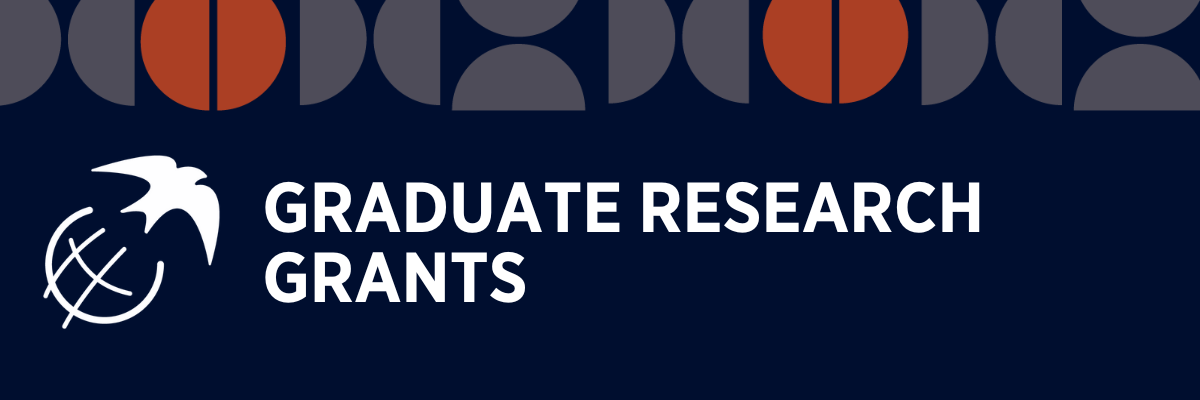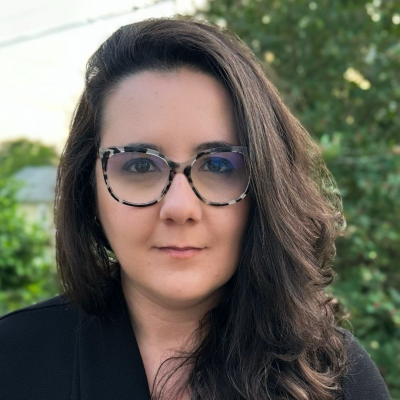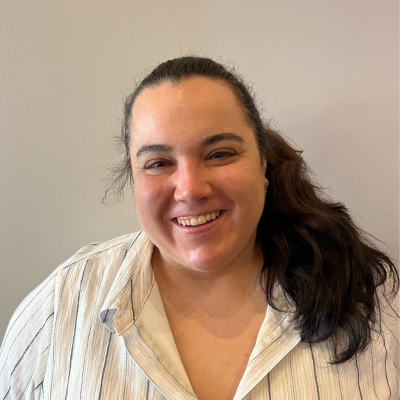The Gladstein Family Human Rights Institute announces the Human Rights Research Grant Competition for graduate students at the University of Connecticut. The objective of the competition is to support and promote research projects on human rights related questions.

2025 Graduate Research Grant Recipients

Bianka Adamatti, Ph.D. Candidate, Department of Political Science
"Genocide through Protracted Land Dispossession: Advancing Domestic and International Legal Approaches Affirmed by Insights of the Guarani-Kaiowá People in Brazil"
Bianka Adamatti is a PhD candidate in the Department of Political Science at the University of Connecticut. Before pursuing her doctoral studies at UConn, Bianka earned a Master of Laws in Brazil and a Master of Arts in History from East Tennessee State University. Her interdisciplinary research explores the limitations of the Genocide Convention in addressing structural and colonial forms of violence against Indigenous peoples, with a particular focus on land dispossession and its legal and political consequences for the Guarani-Kaiowá people of Brazil. Combining legal analysis with fieldwork, Bianka’s dissertation aims to reframe understandings of genocide to better account for Indigenous rights, land-based survivance, and transitional justice.

Danielle Nadeau, Ph.D. Candidate, Anthropology Department
"Judged by Numbers: How Algorithms Are Quietly Rewriting the Courts"
Danielle J. Nadeau is a PhD student at the University of Connecticut whose research examines the role of courtroom technologies in shaping legal decision-making and human rights protections. Her dissertation investigates the use of algorithmic risk assessment tools in U.S. pretrial and sentencing processes, focusing on how these tools influence judicial discretion, procedural fairness, and institutional accountability. With training in both law and anthropology, she uses ethnographic and legal methods to analyze how courtroom actors engage with emerging technologies in environments structured by inequality. Her work contributes to broader conversations on automation, public institutions, and the future of rights-based governance.
Former Recipients
2024
- Asmita Aasaavari
Ph.D. Candidate, Department of Sociology
"Graying Matters, Aging Bodies: Economic and Social Rights Among Seniors in Rural America" - Spencer Hayes
Ph.D. Candidate, Department of Political Science
"Follows, Likes, and Shares: Social Media's Dichotomous Agency in Human Trafficking" - Lauren Danielowski
Ph.D. Candidate, Department of Sociology
"Claiming Reproductive Rights in the US Commercial Surrogacy Market"
2023
- Catalina Alvarado-Cañuta
Ph.D. Candidate, Department of Anthropology
"Healing of Colonial Wounds in Indigenous Peoples through Art"
2022
- Sarah Luria
PhD Candidate, Neag School of Education
"Toward Equity Mindsets: A Tool for Evaluating the Equitable Self" - Rianka Roy
Ph.D. Candidate, Department of Sociology
"Mapping Transnational Rights: Indian Tech Workers’ Mobilization in India and the US" - Madeline Baird
Ph.D. Candidate, Department of Anthropology
"Ethnographic research on the socio-ecological impact and right to health for migrant peoples ‘in transit’ through Darién, Panamá"
2021
- Asmita Aasaavari
PhD Candidate, Department of Sociology
"Domestic Workers’ Organizing in India" - Maria Hall-Faul
Ph.D. Candidate, School of Social Work
"The Right of Children to an Adequate Standard of Living: TANF in the United States" - Ashley Walters
Ph.D. Candidate, Department of Anthropology
"Statelessly United: An Ethnographic Inquiry of Statelessness in the United States"
Eligibility Criteria
- Open to all JD, LLM, master's, and doctoral students in all disciplines from any UConn campus
- In any given year, a student may receive either a Graduate Student Research Grant or the Dissertation Research Fellowship, but not both.
How to Apply
Access the application via Microsoft Forms. The application requires the following materials:
- Narrative description of the proposed research (three pages, double spaced, 12 point font) that contains the following:
- Project Rationale: Please describe your reasoning for undertaking this research project and the impact you believe your project will have on understanding of or policies affecting human rights.
- Impact: Identify the expected contribution your research will make to the field of human rights.
- Methodology: Explain how you will conduct your research. Be explicit in describing the types of methods employed and the advantage of using these particular methods.
- Anticipated budget and budget justification (of up to $2,500). The purpose of the budget narrative is to supplement the information provided in the anticipated budget document to demonstrate you have considered the costs associated with your research. The narrative is different from the spreadsheet in that rather than listing expected costs in dollars, the narrative explains the rationales for these expected costs. (Download the Anticipated Budget and Budget Narrative Template)
- Current CV
- Separate statement from your advisor or supervisor on how the funding will advance your research. The statement should be submitted electronically via https://forms.office.com/r/uNhcjRgDsi.
Application Deadline for 2026: April 3rd
Evaluation of Applications
The proposal should demonstrate overall excellence with a focus on human rights issues, understood broadly. Projects should make a significant contribution to ongoing scholarly, policy, and practice debates in the field of human rights. Priority will be given to applications that evidence human rights coursework and/or prior substantive human rights engagement.
Awards will prioritize primary research activities, including but not limited to: archival research, participant observation, interview, data collection, data set construction, ethnography, textual criticism, digital archiving, and historical preservation. Requests for funding for conference travel and seminar/course tuition (including language or methods training) will also be considered.
All proposals will be reviewed and ranked by a multidisciplinary review committee chaired by the associate director of the Gladstein Family Human Rights Institute and comprised of members of the Gladstein Human Rights Committee. The number of grants will depend on the number of applications ranked 'excellent' by the review panel.